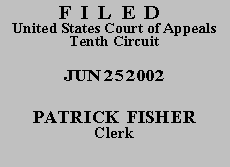

| UNITED STATES OF AMERICA,
Plaintiff - Appellee, v. MIGUEL HERNANDEZ-MARTINEZ, a/k/a Alberto Gonzalez-Diaz, Defendant - Appellant. |
|
Defendant Miguel Hernandez-Martinez pleaded guilty to illegal reentry following deportation, in violation of 8 U.S.C. § 1326(a). Although a violation of this statute generally carries a maximum prison sentence of two years, § 1326(b)(2) provides for an enhanced prison term of up to twenty years for those who reenter the country illegally and have a previous aggravated felony conviction. On the same day that Hernandez-Martinez was indicted for violating § 1326, the United States filed a Notice of Sentencing Enhancement. The notice advised Hernandez-Martinez that, based on at least one of four prior controlled substance convictions, he was subject to the enhanced penalties set out in § 1326(b). On August 30, 2001, Hernandez-Martinez entered a plea of guilty pursuant to a written plea agreement. In the Statement by Defendant in Advance of Plea of Guilty, Hernandez-Martinez acknowledged that he faced a maximum prison term of twenty years.
In accordance with this stipulation and based on his prior aggravated felony conviction, the Presentence Report (PSR) increased Hernandez-Martinez's offense level by sixteen points pursuant to United States Sentencing Guideline § 2L1.2(b)(1)(A). After adjusting for Hernandez-Martinez's acceptance of responsibility and taking into account his criminal history, the PSR concluded that the applicable guideline range was forty-six to fifty-seven months in prison. Hernandez-Martinez did not file any objections to the PSR. The government recommended that Hernandez-Martinez be sentenced to the low end of the guideline range, and on November 6, 2001, the district court accordingly sentenced him to a term of forty-six months in prison.
Hernandez-Martinez now appeals, arguing that the district court was without jurisdiction to sentence him to a term of imprisonment in excess of two years because the fact of his prior conviction was not alleged in the indictment, submitted to a jury, or proved beyond a reasonable doubt. Hernandez-Martinez relies on the Supreme Court's opinion in Apprendi v. New Jersey, 530 U.S. 466 (2000), as support for his argument. In Apprendi, the Supreme Court held that, "[o]ther than the fact of a prior conviction, any fact that increases the penalty for a crime beyond the prescribed statutory maximum must be submitted to the jury, and proved beyond a reasonable doubt." Id. at 490. Thus, Apprendi preserved the holding in Almendarez-Torres v. United States, 523 U.S. 224, 235 (1998), that a prior conviction may be used to increase a sentence even if it is not presented to the jury. See Apprendi, 530 U.S. at 490; see also United States v. Martinez-Villalva, 232 F.3d 1329, 1331-32 (10th Cir. 2000) (holding that Apprendi did not overrule Almendarez-Torres and that we are still bound by Almendarez-Torres).
Hernandez-Martinez concedes his argument is foreclosed by Almendarez-Torres and Martinez-Villalva, but he seeks to preserve his argument for review by the Supreme Court in the event Almendarez-Torres is overruled. This he has done. In the meantime, Almendarez-Torres directly controls our decision in this case, and we must affirm the sentence imposed by the district court.
AFFIRMED.
Entered for the Court
Circuit Judge
*. This order and judgment is not binding precedent, except under the doctrines of law of the case, res judicata, and collateral estoppel. The court generally disfavors the citation of orders and judgments; nevertheless, an order and judgment may be cited under the terms and conditions of 10th Cir. R. 36.3.